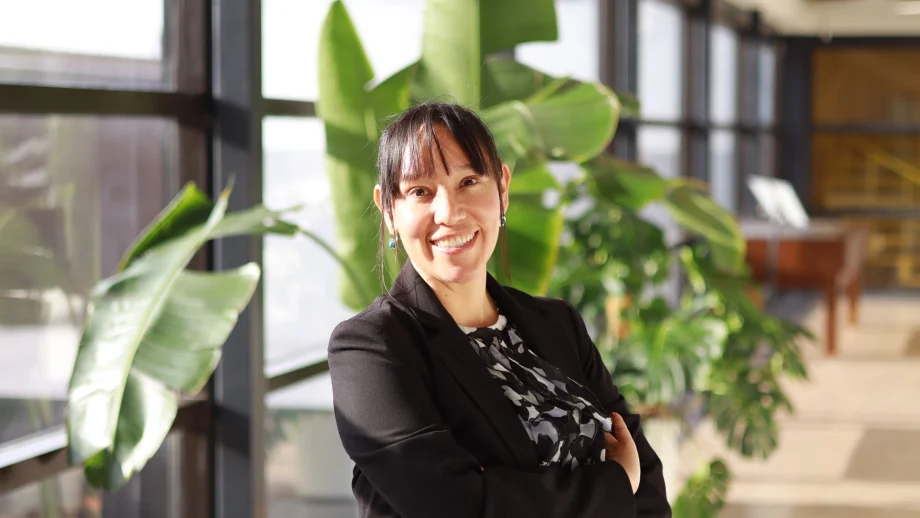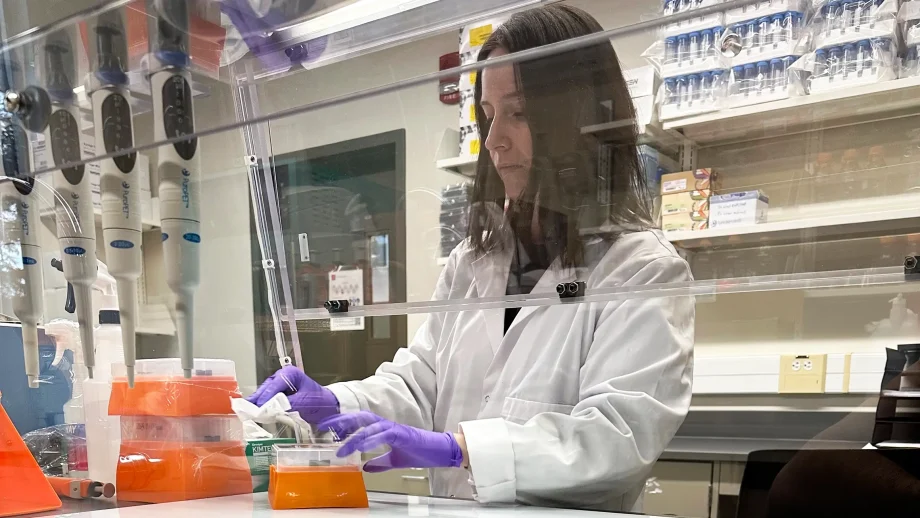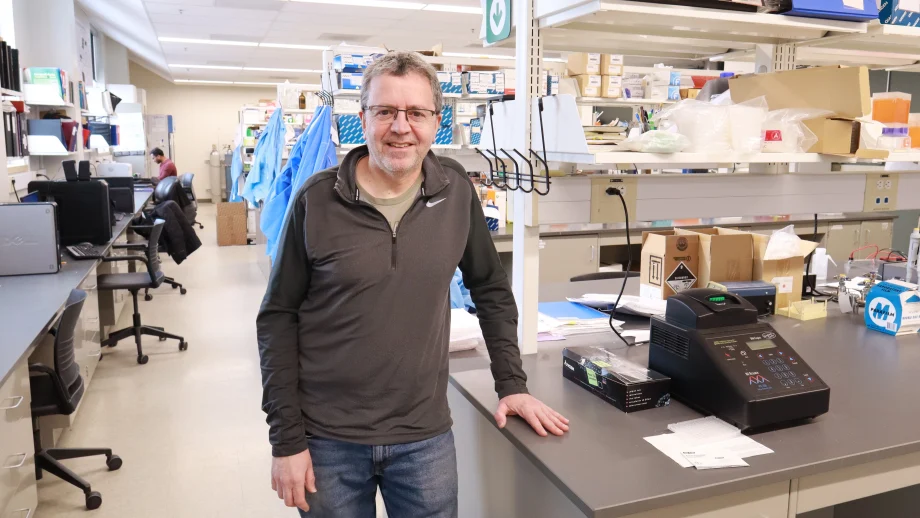
Nicholas Palaschuk, ©UWinnipeg
When Nicholas Palaschuk was a child, he was captivated by the inherent beauty of nature. He kept plants as pets and felt an affinity for trees. This fascination remains strong and is reflected in his studies — he holds a BSc in biology and is a MSc candidate in Bioscience, Technology, and Public Policy at UWinnipeg.
Currently, Palaschuk is conducting a case study of how the Missanabie Cree in Ontario incorporate traditional ecological knowledge and critical local values into forest planning and development processes to help support community development. This includes values surrounding the development and conservation of non-timber forest resources. These non-timber forest resources are integral to the spiritual and cultural identity of many of Canada’s Indigenous communities.
This community based research is part of an interdisciplinary team with UWinipeg’s Dr. Ryan Bullock (environmental studies and sciences) and the Environment and Society Research Group at The University of Winnipeg.
During this time, Palaschuk has learned the depth and strength of the Missanabie Cree’s connection to the land, trees, and plants.
“The Missanabie Cree see beauty in the land, and they are very connected to the land, it’s a spiritual being,” said Palaschuk.
As an outsider coming into the community, Palaschuk needed to find ways to organically connect with its residents, which included helping clear a traditional burial ground and exploring the land and their traditional territory with community members.
During this process of building relationships and trust within the community he found being on the land and learning from the Missanabie Cree was a transformative experience.
“As much as I am involved in the process, the Missanabie Cree First Nation is involved in the process,” said Palaschuk. “The Missanabie Cree have the 7th Generation Principle. For everything they do today, we need to evaluate and consider how it will affect the next seven generations of the land and of the community.”
Working with the community, Palaschuk aligned his research project with the priorities expressed by the Missanabie Cree.
“Integrating community-based management systems that offers alternatives that match local needs, values, and resources, is very important for future success to help non-timber forest resource plans flourish in the Missanabie Cree community,” expressed Palaschuk. “Although every community varies, the framework provides transferable components and processes that may be drawn upon by other communities, and hopefully lead to more inclusive processes of developing forest-based development strategies.”
Palaschuk has been awarded a prestigious doctoral scholarship that will take him to the University of Waterloo, where he will pursue his PhD as part of the Sustainability Management program this fall.




